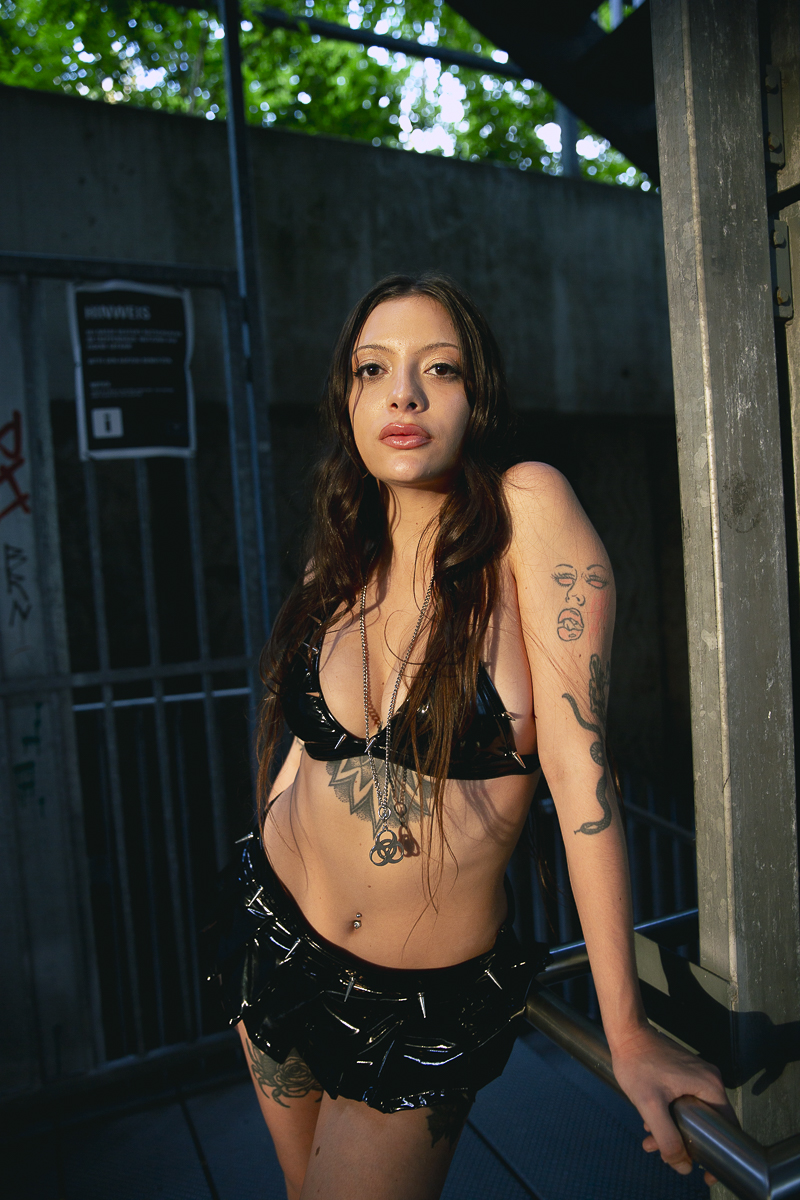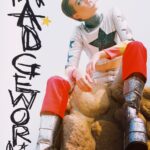Daytime music by Speedy Boarding (@speedy.boardingg) and Kakao Katze @kakaokatze_ and performances by Kei Watanabe…
Rattlesnakke
Interview10 December 2024
Lucero Gamerro, aka Rattlesnakke, is a music producer, DJ, and vocalist from Buenos Aires. YEOJA sat down with Rattlesnakke to chat about her latest EP Sangre Fría, her favorite tracks of the moment, and the importance of creating FLINTA+ spaces in music production.
Hi Rattlesnakke! Congratulations on the release of your new music! Could you tell us about your writing process and what the experience was like for you?
Rattlesnakke: Thanks! This year I’ve been focusing a lot on music production, working on instrumentals and club tools, which allows me to get into sound design—something I really enjoy doing. For my latest EP, Sangre Fría, I began working on the beats and lyrics about two years ago in my hometown of Buenos Aires. It is mostly influenced by RKT, experimental hip-hop, and club-oriented sounds.
Rattlesnakke: When it comes to writing lyrics, I sometimes like to draw directly from my own feelings. Other times, I let my imagination take over, imagining different scenarios. While writing Sangre Fría, I was living through a lot and I experienced all kinds of emotions. I remember staying up most nights making music, other times waking up early in the morning to record my vocals. The whole process was intense, but I’m really proud of how it turned out.
You have a very powerful stage presence. Do you have any rituals that help you get into character for your performances?
Rattlesnakke: Thank you! Yes, of course, sometimes it’s hard for me to get into character, hahaha. I don’t feel like that every day, because I feel like my character is a version of me that doesn’t have insecurities or worries. On stage I like to sing, dance, and connect with people, but there are days where I feel more shy or have social anxiety and it’s hard for me. That’s why I always like to be alone for a bit before playing, sitting down, and being calm. Sometimes I do some breathing exercises and that helps me a lot.
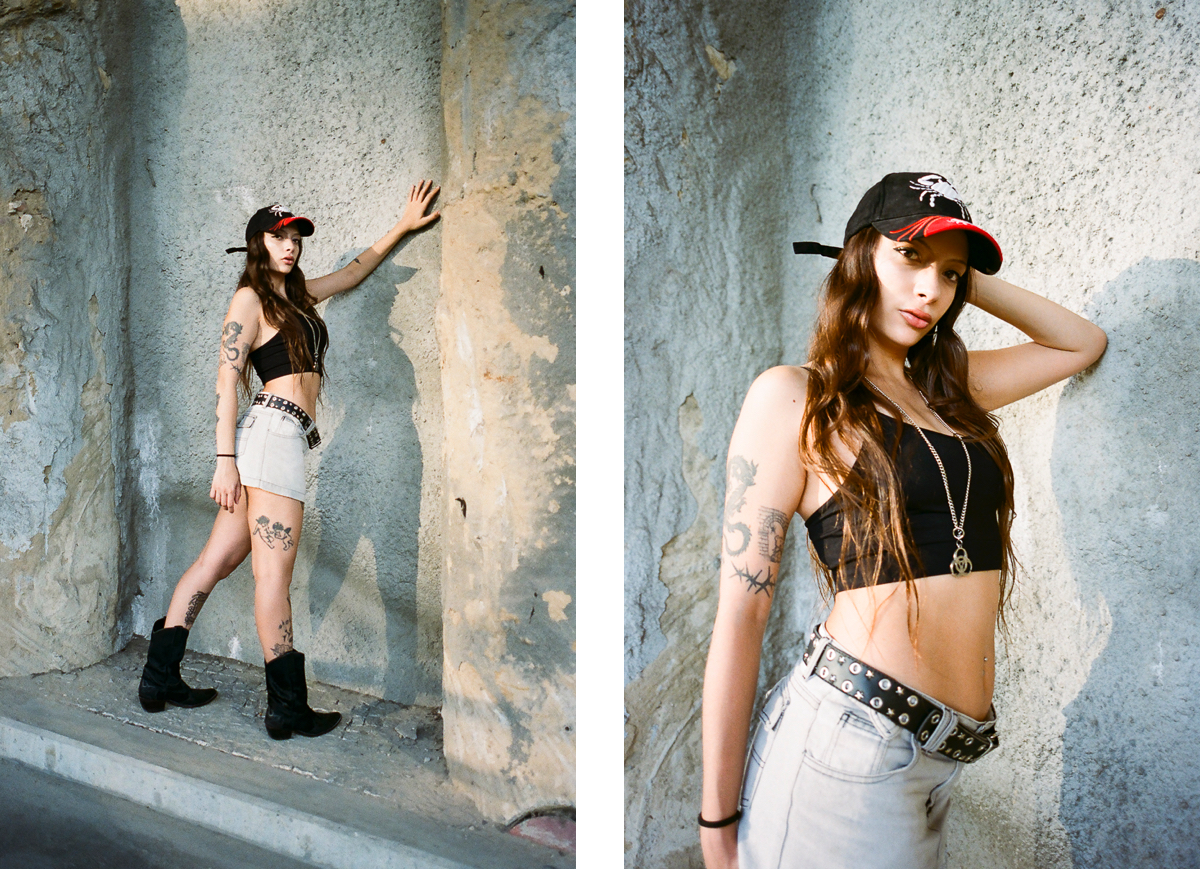
You started out as an MC and DJ in Buenos Aires, playing parties in the underground scene. Could you tell us about this time?
Rattlesnakke: It was around 2017/2018 when I began recording vocals at my home studio in Núñez, Buenos Aires. During that time, I also started DJing at underground parties. One memory that stands out is from New Year’s Eve at a house party in Villa Urquiza, where I played a set that I really connected with, and the crowd seemed to enjoy it too. At that point, I was studying Psychology at university, but in 2018, I decided to leave that behind and pursue music full-time. That’s when I realised I wanted to make this my career.
Since then, your music has transformed through your research on Latin American dance rhythms, feeling more represented in this area of music. Could you tell us about the research process and how it has transformed you?
Rattlesnakke: When I got interested in making music I was mostly going to techno parties, because I met a lot of people from there. But I remember being a teenager and listening to a lot of Cumbia such as Pibes Chorros and Damas Gratis, both bands from Argentina. When I started my research to play tracks on my DJ sets, I discovered a whole universe, mostly on Soundcloud, of edits, blends, and original tracks, bangers to play at the club, but also with percussions with different patterns and rhythms from different countries and regions from Latin America. That really blew my mind, and I started making my own versions based on this. I’ve always thought that in fusion we can find really interesting things.
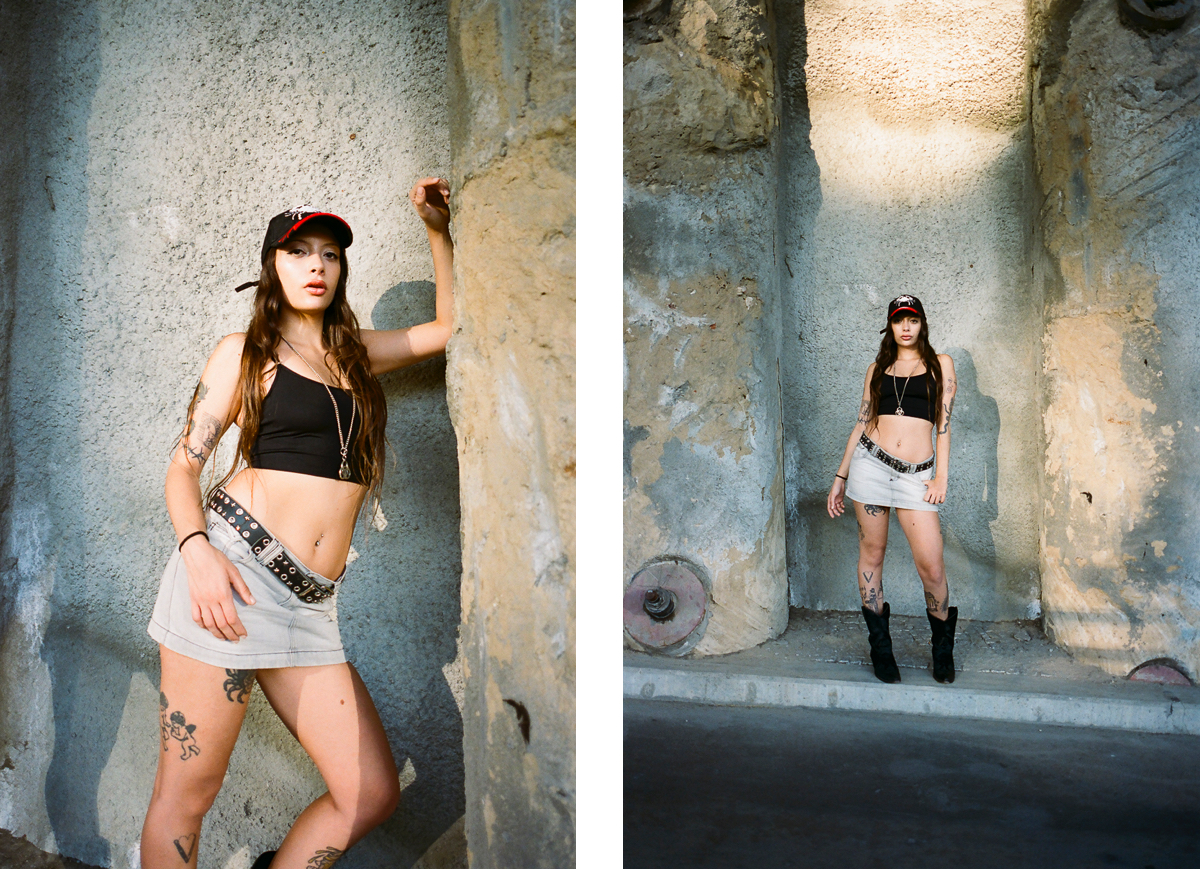
Argentina has come under new registration with President Milei, not without its effects on the national economy. What are your thoughts on the current economic and political situation in Argentina?
Rattlesnakke: This situation makes me quite sad, since Javier Milei is an ultra-right economist. Not only does he not do anything for human rights or to help people, but he is also taking away rights, closing ministries, and blocking all kinds of humanitarian aid. A few months ago, a set of laws was voted on in the Buenos Aires congress. It harms many people and only benefits a few, people with money, businessmen. People went out to the streets and to the doors of congress to peacefully demonstrate and they took about 35 people into custody. So it is also an anti-democratic government. On the other hand, a few months ago there was also an LGBT hate crime, a man murdered three lesbian women and left another seriously injured. The government promotes this type of hate speech. The economy is clearly in a very bad state, prices do not stop rising and there are 55% of poor people in Argentina. It is a very sad moment for my country.
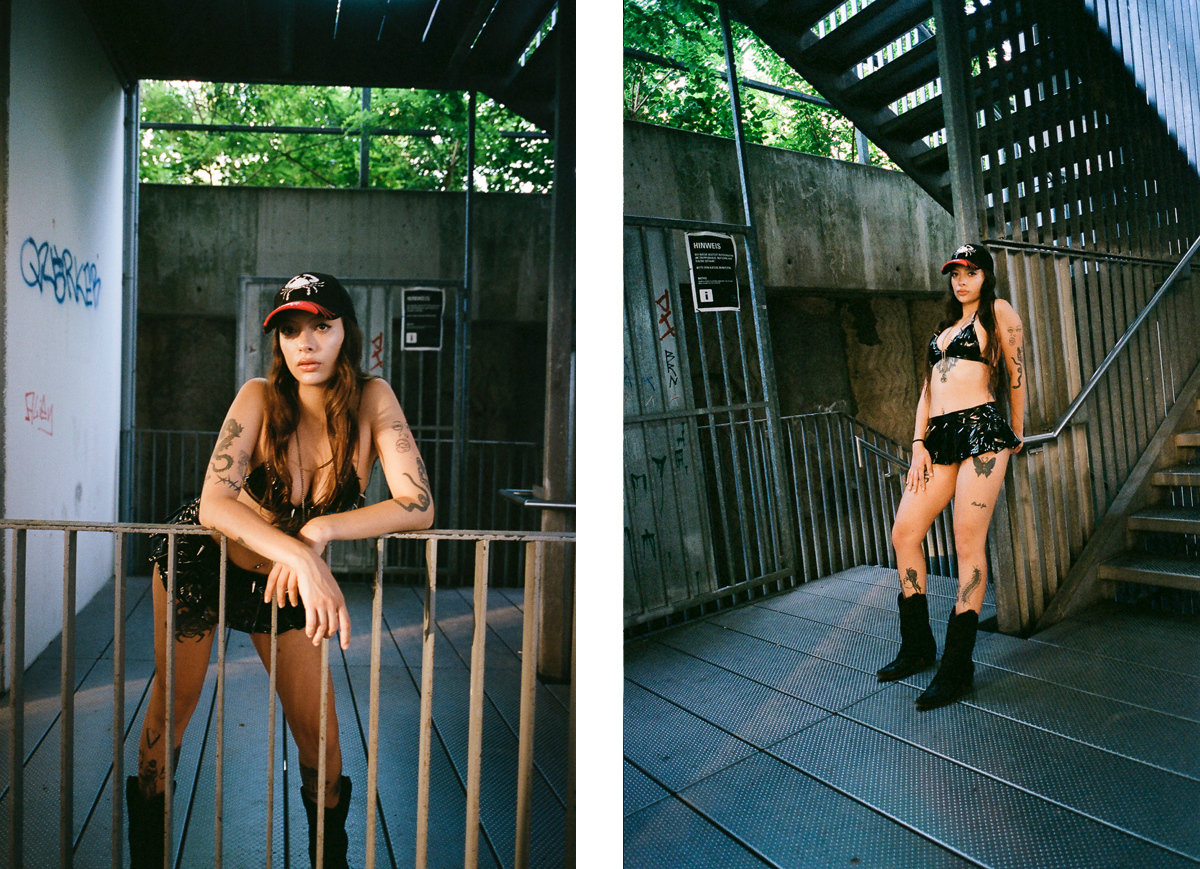
Now you are now based in Barcelona. How are you finding it so far?
Rattlesnakke: It’s great! I’ve only been here for a short time, but I’ve wanted to live in Barcelona for many years. I’ve always loved to travel and being able to do it because of my music is a beautiful thing. There’s a great electronic music scene here, and the Latin Club scene is booming in this city. What I like most about the scene in Barcelona is that there are a lot of FLINTA* events and parties, such as Me Siento Extraña and Latineo.
What are some of your favourite tracks at the moment?
Rattlesnakke: I’ve been listening a lot to Miss Bashful and DBBD lately and I really like what they do. This year also I’ve been listening to Chuquimamani Condori, mostly his last EP named DJ E, and I went to see him live in Barcelona. It was one of my favourite shows ever. Some female producers I look up to are: Coucou Chloe, Debit, Mobilegirl, MJ Nebreda, Tayhana, Nara Vaez, PVSSY, among others.
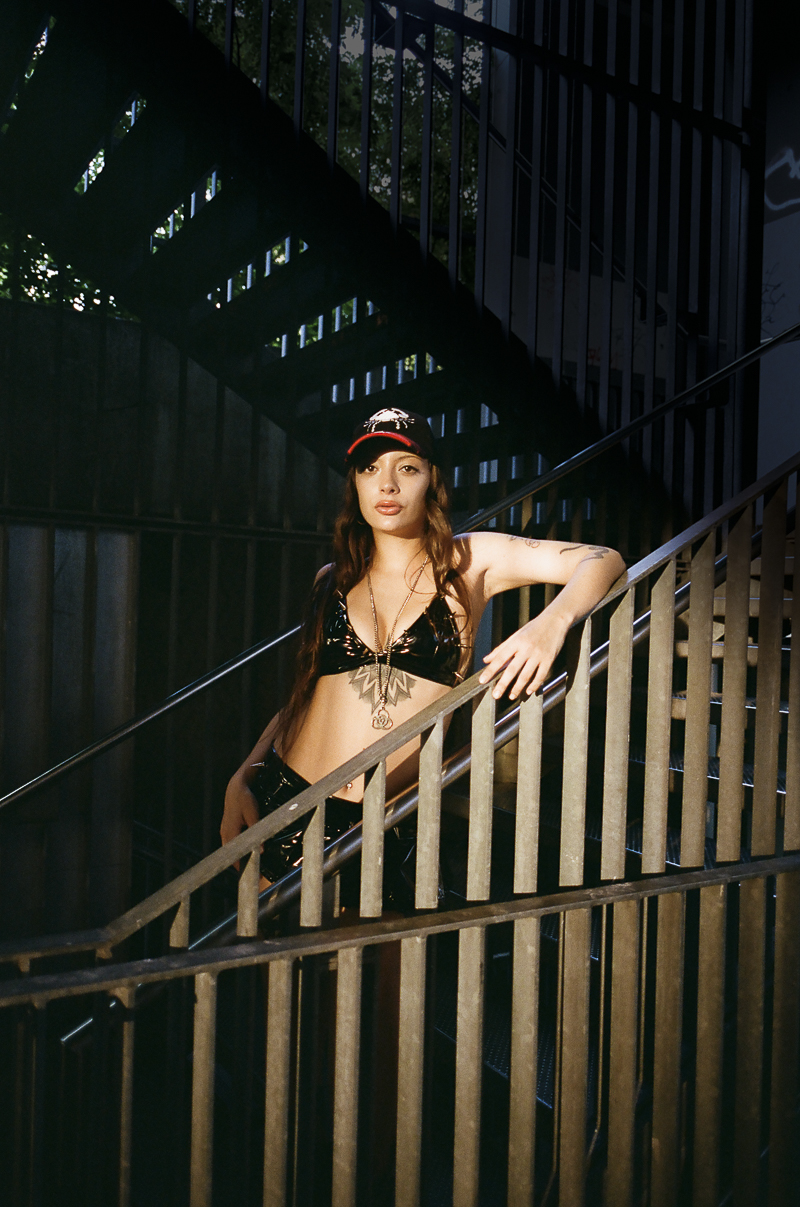
Music production remains a male dominated area, and FLINTA* people are often barred from entering spaces in which knowledge and resources are shared. Do you have any advice for women and queer people who want to start producing music but are unsure of where and how to start?
Rattlesnakke: My advice to women and queer people who want to start producing is not to feel ashamed, and don’t get carried away by mansplaining, because it’s something that happens a lot in this industry. If you have projects, finish them, if you have tracks, release them! Start uploading stuff so people can listen to you. There are more and more women and queer producers, and we can create our own safe spaces, our music studios, where we can share knowledge and resources.
Thank you, Rattlesnakke!
_
Photos by: Rae (Mee-Jin) Tilly. To follow Rattlesnakke on Instagram, click here. For more interviews with musicians, click here.



